
Virtual worlds, playful moments, modern didactics and science you can touch: the GSI Helmholtzzentrum für Schwerionenforschung and the international accelerator center FAIR, currently under construction, will focus even more strongly on promoting young talent and imparting knowledge in the future. With the new SCIENCE POP-UP in Darmstadt's city center, GSI/FAIR aims to enthuse young and old about science and technology: a hands-on space with hands-on science, open to all and tailored for…

The great progress of the FAIR project, the milestones of research at GSI/FAIR, and the current scientific activities were the focus of the visit of Cem Özdemir, Federal Minister of Education and Research, and Timon Gremmels, Hessian Minister of Science and Research, Art and Culture, at the GSI Helmholtzzentrum für Schwerionenforschung and the international accelerator center FAIR (Facility for Antiproton and Ion Research) being built in Darmstadt.
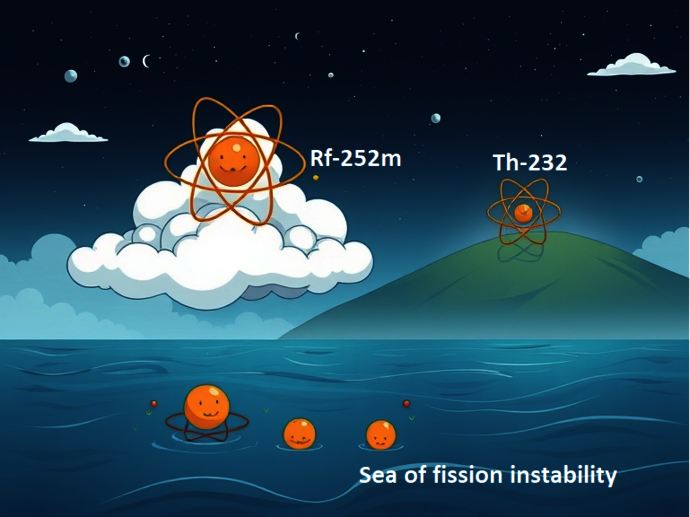
A team of researchers from GSI/FAIR, Johannes Gutenberg University Mainz and the Helmholtz Institute Mainz has succeeded in exploring the limits of the so-called island of stability within the superheavy nuclides more precisely by measuring the superheavy rutherfordium-252 nucleus, which is now the shortest-lived known superheavy nucleus. The results were published in the journal “Physical Review Letters” and highlighted as an “Editor's suggestion”.
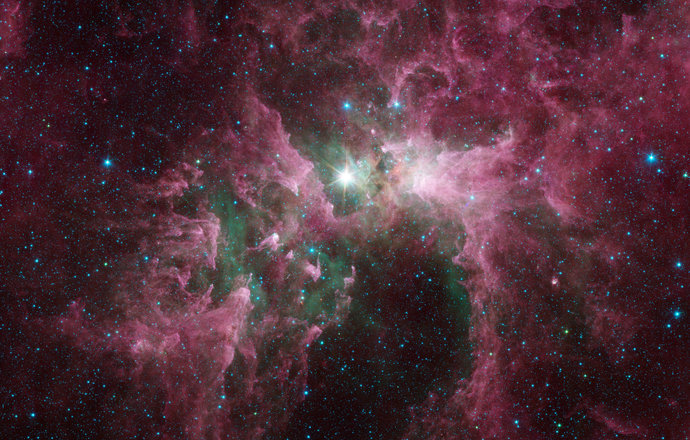
The lectures in the “Wissenschaft für Alle” series of GSI and FAIR will continue in the first half of 2025 in hybrid format. A focus of the current program is the view into our cosmos. Interested parties can either attend the event in the lecture hall of GSI/FAIR following a registration or dial into the broadcast of the event via video conference using an internet-enabled device such as a laptop, cell phone or tablet. The program begins on Wednesday, 22 January 2025, with a lecture by ...

The Sun, the essential engine that sustains life on Earth, generates its tremendous energy through the process of nuclear fusion. At the same time it releases a continuous stream of neutrinos— particles that serve as messengers of its internal dynamics. Although modern neutrino detectors unveil the Sun’s present behavior, significant questions linger about its stability over periods of millions of years—a timeframe that spans ...
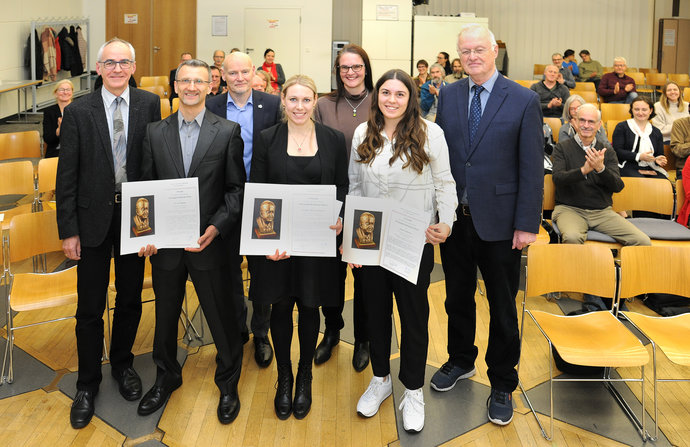
Three young researchers have be honored with the Christoph Schmelzer Prize this year: Dr Katrin Beatrix Schnürle from the Ludwig Maximilian University of Munich and Dr Yuri Simeonov from the Philipps University of Marburg receive the award in recognition of their dissertations, Annika Schlechter from the University of Heidelberg for her Master's thesis. The prize is awarded annually by the Association for the Promotion of Tumor Therapy with Heavy Ions in recognition of outstanding master's and…
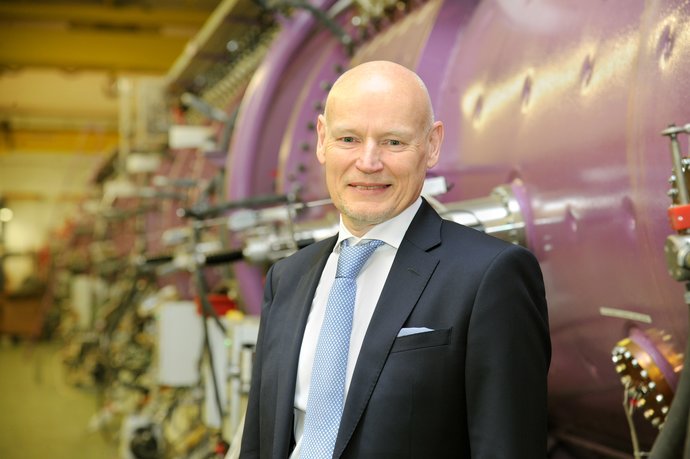
The renowned Swedish experimental physicist Professor Thomas Nilsson took up the position of the Scientific Managing Director at the GSI Helmholtzzentrum für Schwerionenforschung GmbH and the Facility for Antiproton and Ion Research in Europe (FAIR) GmbH on December 1, 2024. With his comprehensive experience and internationally recognized expertise, Professor Thomas Nilsson will play a leading role in shaping the scientific development of the research facility and the international accelerator…
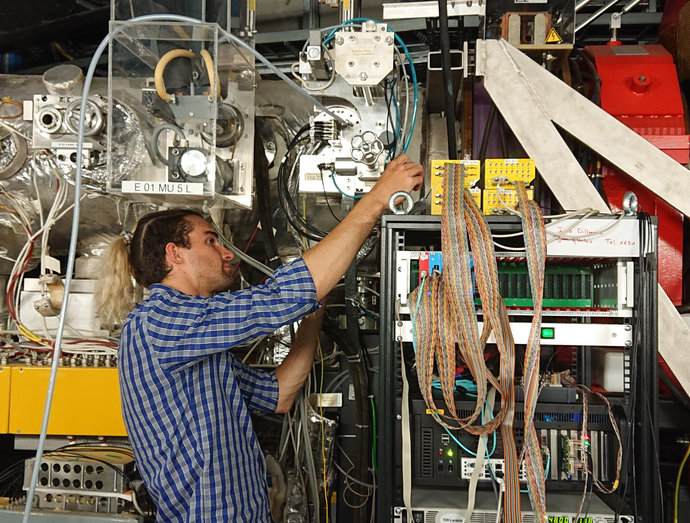
Have you ever wondered how long it took our Sun to form in its stellar nursery? An international collaboration of scientists is now closer to an answer. They succeeded in the measurement of the bound-state beta decay of fully-ionised thallium ions at the Experimental Storage Ring (ESR) of GSI/FAIR. This measurement has profound effects on the production of radioactive lead in asymptotic giant branch (AGB) stars and can be used to help determine the Sun’s formation time. The results ...
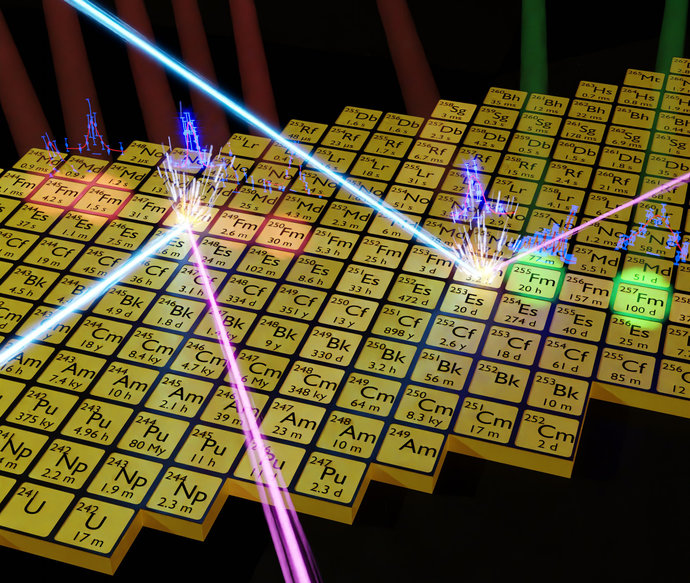
Where does the periodic table of chemical elements end and which processes lead to the existence of heavy elements? An international research team reports on experiments performed at the GSI/FAIR accelerator facility and at Johannes Gutenberg University Mainz to come closer to an answer. They gained insight into the structure of atomic nuclei of fermium (element 100) with different numbers of neutrons. Using forefront laser spectroscopy techniques, they traced the evolution of the nuclear charge…













